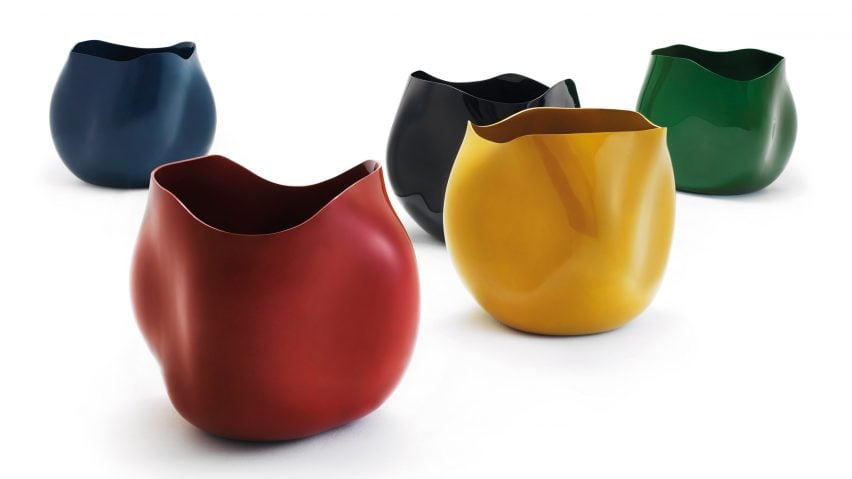A reaction against the "non-reality" of digital technologies has led to a heightened interest in design craft, according to Jonathan Anderson, fashion designer and founder of Loewe's craft prize.
Anderson – founder of British fashion label JW Anderson and creative director of Spanish fashion house Loewe – said hand-crafted objects are currently experiencing a huge surge in popularity, as a backlash to the dominance of mobile phones and other digital devices.
"We're in this moment where we're trying to become more tactile, we actually want to have more touch," the designer told Dezeen. "We are living in such a period of non-reality, we communicate via email all day, we have dates via social media – it's a very TV-relationship towards imagery."
Anderson, born in Northern Ireland, claimed this revival is the reason he launched the annual Loewe Craft Prize – a contest that celebrates the best examples of art and design craftsmanship from around the world.
"Prizes come out of what there is a lack of, and for me, it's a general consensus of people wanting to understand the making and the craft of something," he said. "They want to be able to heighten their senses."
The designer also believes the trend will continue, as the design industry strives to be more sustainable, and consumers start favouring objects that are made to last, rather than disposable.
"We're starting to become more moral as consumers, so I think craft will become fundamental," he said.
"It's better to have four mugs that aren't just white mugs from a high street, and it's better to know the maker."
Anderson launched the Loewe Craft Prize in 2016 – following on from a string of other new craft-focused prizes, fairs and exhibitions, including the Women's Hour Craft Prize launched last year and the Collect fair taking place later this month
"When I first joined Loewe four years ago, I had this idea to start a craft prize because I've been collecting craft for over 10 years, and I wanted to create a platform that shows craft globally," Anderson told Dezeen.
"Contemporary art has so much exposure, and I really don't see the difference between the two," he continued. "I wanted to elevate the profile of craft and get people to talk about the idea of making."
The second edition of the contest attracted over 1,900 entries, from 75 countries. From these, a panel of judges including designer Patricia Urquiola and Design Museum director Deyan Sudjic have selected 30 finalists that vary in practice.
Christopher Kurtz and Julian Watts create sculptural woodworks, while Japanese artist Arko focuses on ancient basketry techniques.
According to Anderson, a common theme across this year's shortlist was vessel-shaped forms. He also noted a resurgence in the popularity of ceramics.
"When you look across the lacquer work, the ceramics and the basketry, there's this idea of a vessel-like shape," he said.
"There's also a strong focus on ceramics this year," he continued. "I've been collecting ceramics for years, and I've seen a huge shift in interest them. It seems that now if you have a Rothko, you've got to have a ceramic ball to go in front of it."
All of the finalists will be exhibited in London's Design Museum from 4 May to 17 June 2018. The final winner will be announced on 3 May and awarded €50,000.
Jonathan Anderson founded his eponymous brand in 2008, having graduated from London College of Fashion.
His own work often explores ideas of gender and identity. He recently curated an entire exhibition based around these themes, titled Disobedient Bodies, for the Hepworth Museum in Yorkshire, England.

